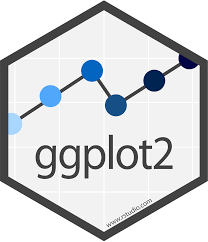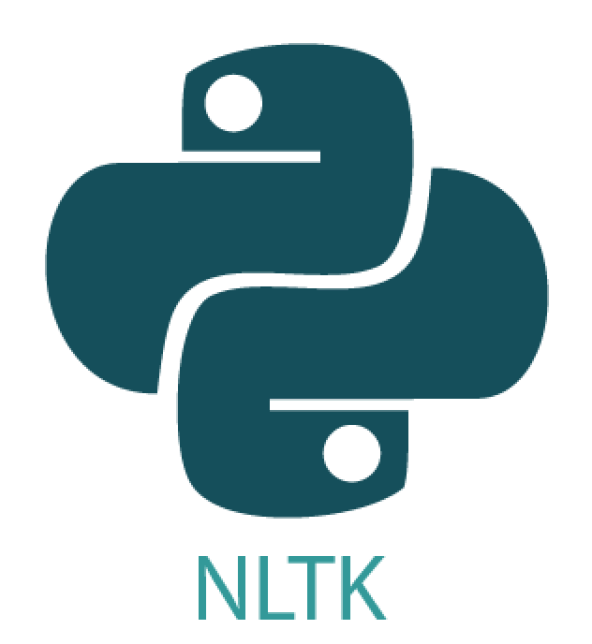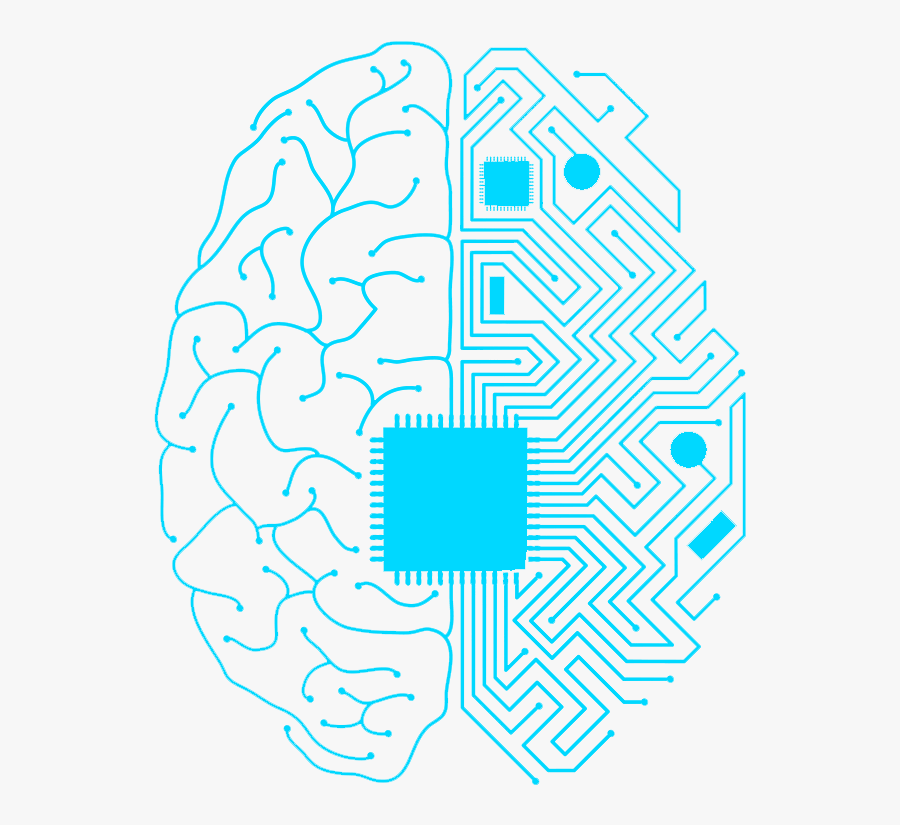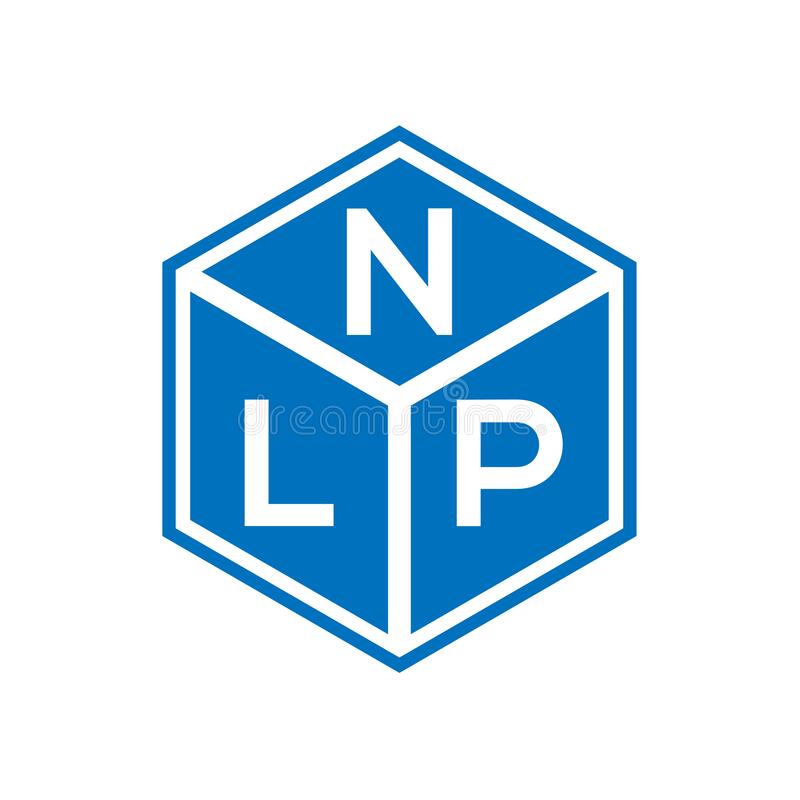Machine learning is a field of artificial intelligence that focuses on
giving computers the ability to learn and improve their performance
based on data. The goal is to enable computers to automatically
analyze data, identify patterns and make decisions without being
explicitly programmed to do so. Machine learning algorithms are
designed to improve over time as they are exposed to more data. Some
examples of machine learning include recommendation systems, image and
speech recognition, and self-driving cars.
A machine learner's job is pretty cool, here are some key
responsibilities:
What is a machine learning course and why should you take one?
Our machine learning course in Laxmi Nagar is a type of educational
program that teaches individuals how to develop, train, and deploy
machine learning models. It typically covers topics such as:
-
Supervised learning, unsupervised learning, and reinforcement
learning.
- Model selection, evaluation, and optimization techniques.
-
Mathematical foundations of machine learning, including linear
algebra, probability, and statistics.
- Data pre-processing and feature engineering.
-
Deep learning techniques such as neural networks, convolutional
neural networks, and natural language processing.
-
Practical application of machine learning in domains such as
computer vision, natural language processing, and predictive
analytics.
Basically, it's a one-stop shop for learning how to create
intelligent machines that can make predictions, classifications, and
recommendations based on data. Here are a few reasons why you should
take machine learning training in Laxmi Nagar:
-
To develop new career opportunities: Machine learning is one of
the fastest-growing and most in-demand fields in tech, with a wide
range of career opportunities in industries such as healthcare,
finance, manufacturing, and more.
-
To stay current: As machine learning continues to evolve and
become more advanced, it's important to stay up-to-date with the
latest techniques and tools.
-
To gain hands-on experience: A machine learning course typically
includes hands-on exercises and projects, giving students the
opportunity to apply what they've learned to real-world problems.
-
To build a portfolio: Completing a machine learning course and
creating a portfolio of projects can help someone stand out in the
job market and showcase their skills to potential employers.
Why should you choose simplilearnbay machine learning course?
simplilearnbay machine learning course in Laxmi Nagar, is a solid choice
for a few reasons:
-
simplilearnbay curriculum is designed to be practical and applied, with
real-world case studies and projects to give students hands-on
experience.
-
simplilearnbay instructors are experienced industry professionals who
bring real-world experience and insights to the course.
-
simplilearnbay offers a flexible learning environment, with both online
and in-person options to accommodate different learning styles and
schedules.
-
simplilearnbay course covers a wide range of machine learning
techniques, from classical algorithms to deep learning, giving
students a well-rounded understanding of the field.
-
The course is updated regularly to keep pace with the latest
developments in the field, ensuring that students are learning the
most relevant and cutting-edge techniques.
-
Students receive personalized feedback and support throughout the
course, helping them to identify areas for improvement and make
progress more quickly.
-
simplilearnbay course is designed to be accessible to learners of all
levels, from beginners to experienced professionals looking to
deepen their understanding of machine learning.
-
simplilearnbay offers a variety of learning resources, including video
lectures, tutorials, code examples, and reading materials,
providing students with a rich learning environment.
So basically, simplilearnbay machine learning training course in Laxmi
Nagar offers a comprehensive and hands-on learning experience with
real-world relevance and expert guidance.
Assured advantages of our out-standing machine learning course
Here are some machine learning course benefits in Laxmi Nagar, one
can relish:
-
Confidence boost: After completing the course, students will feel
confident in their machine learning skills and be ready to tackle
real-world projects with ease.
-
Career advancement: The skills and knowledge gained from the
course can help students advance in their current roles or pivot
to a new career path in machine learning.
-
Problem-solving skills: The course emphasizes critical thinking
and problem-solving, equipping students with the skills to
identify and solve complex problems in a variety of contexts.
-
Collaboration and networking: The course provides opportunities to
connect with peers and industry professionals, fostering
collaboration and networking opportunities.
-
Industry recognition: simplilearnbay machine learning course is
recognized by industry leaders and is widely respected as a
top-tier program.
-
Adaptability: Machine learning is constantly evolving, and our
course prepares students to adapt to new technologies and
techniques as they emerge.
-
Creativity: Machine learning fosters creativity, allowing students
to explore new possibilities and approach problems from unique
perspectives.
-
Lifelong learning: The course instills a passion for lifelong
learning, inspiring students to continue learning and growing
throughout their careers.
What is the ideal course curriculum for machine learning
course?
A solid machine learning course curriculum in Laxmi Nagar might
include:
-
Mathematical foundations: Linear algebra, calculus, probability
theory, and statistics.
-
Algorithms: Supervised learning (linear regression, logistic
regression, decision trees, support vector machines),
unsupervised learning (k-means clustering, principal component
analysis, autoencoders), and reinforcement learning.
-
Pre-processing techniques: Data cleaning, feature selection, and
feature engineering.
-
Deep learning: Neural networks, convolutional neural networks,
recurrent neural networks, and transfer learning.
-
Model deployment: How to deploy and maintain machine learning
models in production environments.
-
Ethics: Discussion of the ethical implications of machine
learning and best practices for responsible development and
deployment.
-
Natural language processing: Techniques for processing and
analyzing text data, such as tokenization, stemming, and
sentiment analysis
-
Computer vision: Approaches for analyzing and understanding
visual data, including object detection, image classification,
and image segmentation.
-
Time series analysis: Techniques for analyzing and forecasting
time-series data, such as trend detection, seasonality, and
ARIMA modeling.
-
Explainability: How to understand and explain the decisions made
by machine learning models, which is crucial for ensuring
transparency and accountability.
-
Big data processing: How to handle large and complex data sets,
including distributed computing, scalability, and streaming
data.
-
Fairness and bias: Understanding and mitigating biases in
machine learning models, including techniques such as
adversarial training and fairness-aware algorithms.
-
Domain-specific machine learning: The application of machine
learning to specialized domains, such as healthcare, finance,
and autonomous vehicles.
-
Reinforcement learning: Techniques for training agents to take
actions in an environment in order to maximize a reward, such as
in games, robotics, and control systems.
-
Model optimization: Techniques for improving the efficiency,
interpretability, and generalizability of machine learning
models, including regularization, feature engineering, and model
compression.
Who is eligible for this machine learning course?
Generally, anyone with a solid foundation in math, programming,
and computer science concepts is a good fit for a machine learning
course for beginners in Laxmi Nagar. Here are some more specific
eligibility criteria:
-
Bachelor's degree in computer science, mathematics, statistics,
or a related field.
-
Proficiency in programming languages like Python, R, or Java.
-
Familiarity with statistical concepts such as probability,
regression, and hypothesis testing.
-
Basic knowledge of machine learning concepts like supervised and
unsupervised learning, classification, and regression.
-
An interest in data analysis, data science, and artificial
intelligence.
These criteria are not strict requirements, and individuals from
diverse backgrounds can excel in machine learning with the right
mindset and a willingness to learn.
Why is it beneficial to take a machine learning course?
Let’s discuss some of the machine learning course benefits in
Laxmi Nagar one can enjoy:
-
Machine learning is a rapidly growing field with immense
potential for solving complex problems in various industries.
-
Machine learning skills are highly in demand and can lead to
well-paid jobs in fields such as finance, healthcare,
manufacturing, and marketing.
-
Machine learning can help you become more efficient and
productive by automating tasks, making predictions, and
identifying patterns in data.
-
Machine learning enables you to work with large and complex data
sets, extract valuable insights, and make informed decisions
based on data.
-
Machine learning can help you gain a deeper understanding of
data, improve analytical skills, and develop critical thinking
abilities.
-
Machine learning can help you build smarter and more intelligent
systems, such as self-driving cars, virtual assistants, and
predictive maintenance systems.
-
You'll gain a competitive edge in the job market by being
proficient in a cutting-edge technology.
-
You'll become part of a community of like-minded professionals
who share a passion for using data and algorithms to solve
problems.
-
Machine learning can help you automate repetitive and
time-consuming tasks, freeing up time for more creative and
strategic work.
-
It's a fascinating field with endless opportunities for
exploration and discovery!
What incentives one can relish after finishing the course?
The job opportunities for machine learning professionals are vast!
Here are a few popular ones:
-
Machine Learning Engineer: Develops and deploys machine learning
models for various applications.
-
Data Scientist: Analyzes and extracts insights from large and
complex data sets using machine learning algorithms.
-
AI Researcher: Conducts research and experiments to advance the
field of AI and machine learning.
-
Natural Language Processing (NLP) Engineer: Develops and trains
algorithms to understand and analyze natural language data.
-
Computer Vision Engineer: Builds and trains algorithms to
extract insights from visual data, such as images and videos.
-
Machine Learning Product Manager: Oversees the development and
deployment of machine learning products and ensures they align
with business goals and customer needs.
-
Machine Learning Consultant: Provides guidance and support to
organizations looking to implement machine learning solutions.
-
Robotics Engineer: Develops and implements machine learning
algorithms for robotic systems, such as self-driving cars and
industrial robots.
-
Healthcare Data Scientist: Uses machine learning to analyze
medical data and develop predictive models for improving patient
outcomes and healthcare systems.
-
FinTech Data Scientist: Uses machine learning to analyze
financial data and develop algorithms for risk management, fraud
detection, and investment decision-making.
-
Cybersecurity Analyst: Uses machine learning algorithms to
detect and prevent cyber threats and security breaches.
-
Supply Chain Optimization Specialist: Uses machine learning to
optimize logistics and supply chain operations, reducing costs
and increasing efficiency.
-
Social Media Analyst: Uses machine learning to analyze social
media data and insights, helping organizations better understand
their customers and improve their social media strategies.
-
Marketing Analytics Specialist: Applies machine learning
algorithms to analyze customer data and improve marketing
campaigns, increasing conversion rates and ROI.
-
Human Resources Analytics Specialist: Uses machine learning to
analyze employee data and improve hiring, retention, and
performance management.
Perks of getting a machine learning course
There are many benefits to our machine learning certification
course in Laxmi Nagar, kindly go through the below mentioned
bullets to get the finest idea.
- A comprehensive and high-quality course curriculum.
-
You'll have the opportunity to communicate with industry experts
to create a personalized curriculum tailored to your needs and
interests.
-
Gain valuable real-world experience with 15+ industry projects
across 6+ different domains.
-
Our live interactive sessions and recorded videos give you the
flexibility to learn at your own pace.
-
This course is designed to be completed in just five months, but
you'll have lifetime access to the materials and resources.
-
Our simulated interview sessions help you prepare for the real
world and give you the confidence to succeed in a job interview.
-
You'll earn two certifications - one from Microsoft and one from
a leading company. These certifications will validate your
skills and give you a competitive edge in the job market.
-
You'll receive guaranteed job referrals to help you land your
dream job.
-
You can choose between an online or an offline course, depending
on your preferences and availability.
-
This course is designed to be completed in just five months, but
you'll have lifetime access to the materials and resources.
What core skills and projects will be focused upon in this
machine learning course?
The core skills and projects covered in an advanced machine
learning course in Laxmi Nagar include:
-
Data preprocessing: cleaning, transforming, and organizing data
to make it suitable for machine learning algorithms.
-
Exploratory data analysis: using visualizations and statistical
methods to identify patterns and relationships in data.
-
Model selection: choosing the right machine learning algorithm
for a given problem.
-
Hyperparameter tuning: optimizing the performance of machine
learning models by adjusting hyperparameters such as learning
rate and regularization.
-
Model evaluation: assessing the performance of machine learning
models using metrics such as accuracy, precision, recall, and F1
score.
-
Model deployment: integrating machine learning models into
production systems.
-
Cross-validation: evaluating the generalizability of machine
learning models by splitting the data into training and
validation sets.
-
Feature engineering: transforming raw data into meaningful
features that can improve model performance.
-
Dimensionality reduction: reducing the number of features in a
data set to improve model performance and reduce computational
complexity.
-
Ensemble methods: combining multiple machine learning models to
improve performance.
-
Unsupervised learning: identifying patterns in unlabeled data
and clustering similar data points.
-
Reinforcement learning: training agents to make decisions in an
environment through trial and error and reward feedback.
How long this machine learning course will stretch?
Machine learning course duration in Laxmi Nagar is 4-months along
with a special provision of special batches where the students who
want to finish this course as soon as possible and want to
maintain work life balance can go for this particular option:
-
A 4-month machine learning course would likely cover the
fundamentals of machine learning algorithms, such as linear and
logistic regression, decision trees, and support vector
machines.
-
The course may also touch upon more advanced topics such as
natural language processing, computer vision, and deep learning.
-
You can expect to learn about data preprocessing, model
evaluation, and model deployment during the 4-month course.
-
The course will likely require you to complete projects and
assignments to solidify your understanding of machine learning
concepts.
How much a machine learning course cost?
Machine learning course fees in Laxmi Nagar is ₹30K excluding the
special offers:
-
Such a course could provide you with a solid foundation in
machine learning, covering core concepts and techniques.
-
The course might include lecture videos, readings, and
interactive exercises to help you practice and apply what you
learn.
-
At this price point, the course might not include personalized
mentorship or one-on-one support, but it could offer access to a
community of other learners and instructors for discussion and
collaboration.
-
It's likely that the course will cover practical applications of
machine learning in various industries such as finance,
healthcare, and retail.
Prediction of the future of machine learning industry
Here's what some experts are saying about the future of machine
learning:
-
Increased adoption in healthcare: ML will be used to improve
diagnosis, treatment, and disease prediction.
-
Autonomous vehicles: ML will enable self-driving cars to
navigate safely and efficiently.
-
Natural language processing: ML will improve language
translation, speech recognition, and chatbot development.
-
Cybersecurity: ML will play a key role in identifying and
preventing cyber attacks.
-
Financial services: ML will be used for fraud detection,
investment analysis, and risk management.
-
Personalization: ML will enable more personalized products and
services, such as personalized medicine and personalized
education.
-
Smart cities: ML will be used to optimize transportation, energy
usage, and public services in smart cities.
-
Manufacturing: ML will be used to optimize production processes,
predict maintenance needs, and improve quality control.
-
Entertainment: ML will be used to create more immersive gaming
and virtual reality experiences, and to personalize content
recommendations.
-
Robotics: ML will enable robots to perform more complex tasks,
such as assembly, inspection, and logistics.
-
Agriculture: ML will be used to optimize crop yield, improve
soil health, and reduce water usage.
-
Aerospace: ML will be used to optimize aircraft design, improve
navigation and autonomous flight, and monitor aircraft
performance.
-
Retail: ML will be used for personalized product
recommendations, inventory management, and demand forecasting.
-
Energy: ML will be used to optimize energy production and
distribution, and to improve the efficiency of renewable energy
sources.
-
Healthcare: ML will be used for drug discovery, medical imaging
analysis, and disease diagnosis.
-
Government: ML will be used for predictive policing, disaster
response, and public health management.
-
Education: ML will be used to personalize learning and provide
real-time feedback to students.
-
Law: ML will be used for legal research, contract analysis, and
predictive litigation.
-
Transportation: ML will be used to optimize traffic flow,
improve safety, and manage autonomous vehicles.
-
Insurance: ML will be used to improve underwriting, claims
processing, and risk assessment.
-
Climate change: ML will be used to predict extreme weather
events, monitor carbon emissions, and optimize renewable energy
sources
-
Gaming: ML will be used for game design, character development,
and interactive gameplay.
-
Construction: ML will be used for site planning, predictive
maintenance, and safety monitoring.
-
Art and design: ML will be used to create digital art, automate
design tasks, and predict consumer preferences.
-
Cybersecurity: ML will be used to detect and respond to cyber
threats, including phishing, malware, and data breaches.
-
Space exploration: ML will be used to analyze data from space
missions, plan spacecraft trajectories, and monitor astronaut
health.
How distinctive is to get the online machine learning course
than an offline setting?
Fair point! Here are some key distinctions between the online
machine learning course in Laxmi Nagar versus machine learning
classes in Laxmi Nagar:
-
Physical location: Online courses are virtual, while in-person
classes require students to be physically present in a classroom
setting.
-
Instructor interaction: In-person classes allow for direct
interaction between students and instructors, while online
courses may rely more on asynchronous communication or
pre-recorded lectures.
-
Peer interaction: In-person classes provide opportunities for
in-person collaboration and networking, while online courses may
offer virtual collaboration tools but lack the same level of
personal interaction.
-
Assessment methods: Online courses may use automated grading
tools or online exams, while in-person classes may have more
traditional methods such as written exams, presentations, or
group projects.
-
Technology requirements: Online courses require a reliable
internet connection and a device with appropriate hardware and
software, while in-person classes may only require a pen and
paper.
-
Flexibility: Online courses can be taken at any time of day,
while in-person classes are typically scheduled at specific
times.
-
Cost of materials: Online courses may require digital materials,
such as e-books or online resources, while in-person classes may
require physical textbooks or other materials.
-
Cultural experience: In-person classes may provide opportunities
to interact with a diverse group of people and experience
different cultures, while online courses may lack this type of
exposure.
How huge the hunger is there in India for machine learning
course?
The demand for machine learning courses in India is huge! Here's
why:
-
The country has a large and fast-growing tech sector that is
heavily focused on innovation and technological advancement,
which creates a high demand for skilled professionals in fields
like machine learning.
-
The government has also made significant investments in AI and
machine learning, creating new opportunities for professionals
in the field.
-
India has a large pool of talented and tech-savvy youth who are
interested in pursuing careers in machine learning and related
fields.
-
With the rise of big data, there's a growing demand for
professionals who can analyze and extract insights from large
datasets using machine learning algorithms.
-
The growth of the e-commerce industry in India has led to an
increased demand for machine learning experts who can improve
customer experience and personalization.
-
The adoption of machine learning in healthcare, finance, and
other industries is driving demand for skilled professionals in
these fields.
-
India's demographic dividend - its large and young population -
makes it a prime location for machine learning talent
development.
-
The rise of automation and robotics is driving demand for
machine learning experts who can develop algorithms for
autonomous systems.
How much a machine learner can earn nationally and
internationally?
Nationally, machine learning engineers in India can earn anywhere
from $20,000 to $100,000 annually, depending on their skills,
experience, and location.
Internationally, machine learning
engineers can earn even more, with salaries ranging from $100,000
to $200,000 or more in countries like the United States, Canada,
and the United Kingdom.
The specific salary range depends on factors such as the company
size, industry, and job responsibilities, as well as the
employee's level of education, skills, and experience.
Machine learning experts who have advanced degrees and specialize
in specific areas, like natural language processing or computer
vision, can command higher salaries.
What machine learning course is all about?
Machine learning courses syllabus in Laxmi Nagar, covers a wide
range of topics, but here are some of the key areas:
-
Mathematics: This includes linear algebra, calculus,
probability, and statistics, which are used to understand data
and make predictions.
-
Algorithms: Students learn different algorithms like regression,
decision trees, and neural networks, and how to use them to
train and test machine learning models.
-
Data preprocessing: This includes techniques like data cleaning,
feature engineering, and feature selection to transform raw data
into a format that's suitable for machine learning models.
-
Model evaluation: This includes using metrics like accuracy,
precision, recall, and F1 score to measure the performance of
machine learning models and improve them.
-
Machine learning frameworks: These include libraries like
TensorFlow, PyTorch, and scikit-learn that provide pre-built
tools and algorithms to make machine learning easier.
Benefits of getting the machine learning course
There are several benefits to getting a machine learning course,
including:
-
Increased job opportunities in the growing field of machine
learning and artificial intelligence.
-
Higher salary potential in machine learning roles compared to
other fields in the tech industry.
-
The ability to apply machine learning techniques to real-world
problems and create impactful solutions.
-
Enhanced data analysis skills and the ability to extract
valuable insights from large and complex data sets.
-
Improved critical thinking and problem-solving skills, as well
as the ability to think creatively and analytically.
-
Opportunities for lifelong learning and professional growth, as
the field of machine learning continues to evolve and new
technologies emerge.
How huge is the scope for machine learning course?
Internationally- the scope for machine learning is massive. Some
estimates suggest that the global machine learning market size
will reach over $209 billion by 2028. The demand for machine
learning expertise is only going to increase as more and more
industries begin to adopt machine learning techniques to improve
efficiency, reduce costs, and enhance customer experience. The
rise of big data, the Internet of Things (IoT), and cloud
computing is creating new opportunities for machine learning to be
applied in a wide range of applications, from self-driving cars to
personalized medicine. Overall, the future of machine learning
looks bright, with plenty of opportunities for those who have the
skills and knowledge to make the most of this exciting field.
Here's a quick rundown of the machine learning scope in
India:
-
India has a large and growing pool of talented machine learning
professionals, with many engineers and data scientists having
expertise in the field.
-
The Indian government has recognized the potential of machine
learning and has launched initiatives to promote its adoption in
various sectors, including healthcare, agriculture, and
transportation.
-
Indian startups and companies are increasingly investing in
machine learning, creating new job opportunities for
professionals in the field.
-
There is a growing demand for machine learning in the e-commerce
and retail sectors in India, as companies look to improve their
recommendation systems and personalize the customer experience.
-
Overall, the future of machine learning in India looks bright,
with many opportunities for professionals to contribute to this
rapidly evolving field.
-
The use of machine learning in healthcare is on the rise in
India, with applications in areas such as medical imaging,
disease diagnosis, and drug discovery.
-
The Indian government has launched several initiatives to
promote the use of machine learning in agriculture, including
the development of precision farming techniques and crop yield
prediction.
-
Machine learning is being used in the financial services sector
to detect fraud, identify anomalies, and make better investment
decisions.
-
- The Indian government has also launched the National
Artificial Intelligence Portal, which is designed to promote the
development and adoption of AI and machine learning technologies
in India.
How to get admission in the machine learning course?
simplilearnbay offers a cutting-edge machine learning course in Laxmi
Nagar, and the admission procedure is designed to be both swift
and professional:
-
Potential students can submit their application through the
institution's online portal.
-
Subsequent to submission, an admissions representative will
arrange a screening call with the applicant to appraise their
qualifications and suitability for the program.
-
Following the call, the candidate will be requested to provide
their transcripts, resume, and any additional pertinent
materials for review.
-
The admissions committee will meticulously assess the provided
materials and make a final decision.
-
Selected candidates will be notified of their admission and can
begin their journey toward becoming proficient machine learners.
simplilearnbay offers a cutting-edge machine learning course in Laxmi
Nagar, and the admission procedure is designed to be both swift
and professional:
























.png)
.png)


.jpg)



